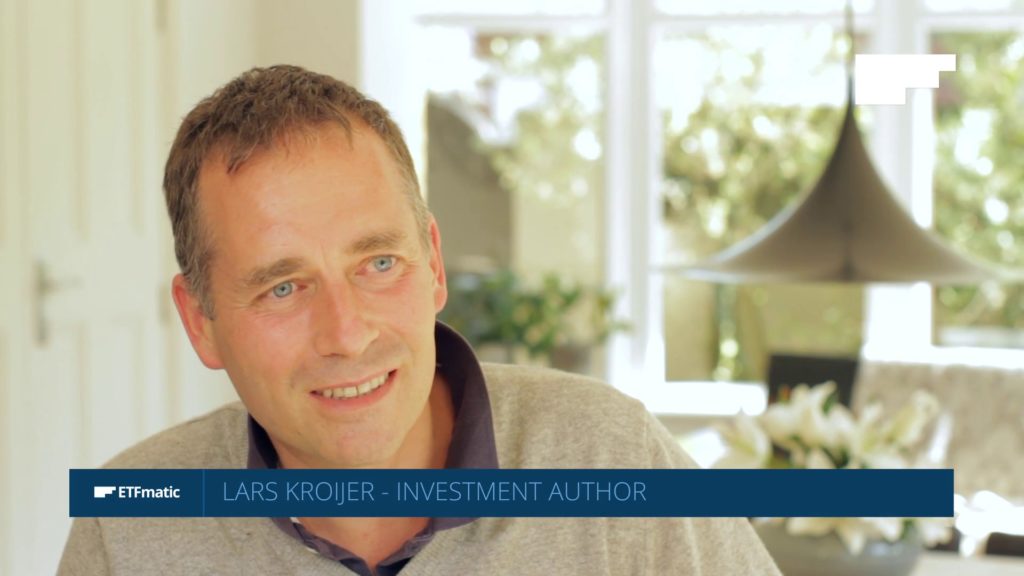In this Video Robin Powell and Lars Kroijer explain how to respond to crashes and corrections?
Hello there. Throughout stock market history, there’ve always been crashes and corrections, and there always will be. What’s more, it’s at precisely those times of extreme market turbulence that investors tend to make their biggest mistakes. Here’s the investment author Lars Kroijer.
So how should you react? I always say well, a lot of that is about looking inward. What is your risk tolerance? Has anything changed to your knowledge about the markets and your ability to outperform the markets. The overwhelmingly likelihood is no.Whether it’s now March 2009 and you’ve lost half your money you still can’t out perform the market, you still can’t know what’s going to happen 12 months in. But that doesn’t mean that the climb hasn’t altered your circumstances. You might paradoxically be that, as a result of a great loss, you have a lesser tolerance for risk. That’s a personal thing, and you should treat it as that.
The problems is that human beings are hard-wired to react to recent events. The bigger the event, the more likely we are to react. People have very short memories in financial markets and people forget. Even if you look at financial markets over the past several hundred years we will now look at the markets that were successful, there’s selection bias. Once every so often there will be a huge calamity. How bad was 2008 really? Well pretty bad right? A lot of really awful things happened at the same time. But the banking system didn’t collapse, no governments went bankrupt.
The fact is, we can’t predict the future, and investors should be prepared for a severe market downturn at any time. The best way to do it is to diversify.
Should you have gold bars in your vault somewhere that your gonna go pickup and in the case where that was a real store of value would you actually want to wander the streets with these gold bars? Should you have bought a gold ETF? Well in a complete clarity you probably couldn’t transact any of these things, so they’re not good answers. But again if you have the most broadly diversified set of stocks, there’s some chance that some sector in some geography somewhere, would have done just ok. So there probably would have been some value there.
That’s it. Thanks for watching.
With all investments your capital is at risk and the value of your investments and the income deriving from it can rise as well as fall. Past performance is not a guide to future performance. This site is provided for information purposes only and is not intended as a recommendation or an offer or solicitation for the purchase or sale of any financial instruments. Robo-advisor is category established by U.S. companies like Betterment and Wealthfront, it does not imply we provide advice. Ask a Financial Advisor if in doubt. Amazon, Amundi, Apple, Barclays, Blackrock, Boost, Deutsche Bank, ETF Securities, First Trust, Google, HSBC, Invesco, Lyxor, SaxoBank, State Steet, Source, UBS, Ubuntu, Vanguard, Windows and Wisdom Tree are trademarks of their respective owners. ETFmatic Ltd is authorised and regulated by the Financial Conduct Authority (No. 657261) and is a limited liability company registered in England and Wales, no. 08856747, with a registered office at 4th Floor 7-10 Chandos Street, Cavendish Square, W1G 9DQ, London, United Kingdom. ETFmatic Ltd is registered for VAT with the HMRC with registration number 190 8981 63. The custodian of our clients money is Barclays Bank, while the ETF’s are held by Saxo Bank in an account in the name of ETFmatic Global Nominees Ltd. Our services are available in Austria, Belgium, Bulgaria, Croatia, Cyprus, Czech Republic, Denmark, Estonia, Finland, France, Germany, Gibraltar, Greece, Hungary, Iceland, Ireland, Italy, Latvia, Liechtenstein, Lithuania, Luxembourg, Malta, Netherlands, Norway, Poland, Portugal, Romania, Slovakia, Slovenia, Spain, Sweden and the United Kingdom. Free simulation accounts are available worldwide.



